Yes, American-based slaughter plants have been closed and horse slaughter ruled illegal in the states. But… horses are still being sold to kill buyers in the US and then transported across the border to both Canada and Mexico where horse slaughter continues. And… the same issues exist in those plants as did American plants of inhumane slaughter practices.
I am surprised that I haven't seen these videos posted in more places.
WARNING: Very Graphic
Videos from Bouvry Exports in Alberta
Videos from Viande Richelieu in Quebec
The existence of these videos, which imo are some of the best undercover videos demonstrating the atrocities present in slaughter plants, is thanks to The Canadian Horse Defense Coalition who is pushing to end slaughter in Canada.
Still images have also been posted on their site under the “Chambers of Carnage” page along with many other links which simply make one sick to their stomach.
The question still begs to be asked, “why are American horses still being slaughtered?”
Well, American horses are still being bred irresponsibly. They are still being bought by first time owners who know nothing about horses and then discard them when they get injured, frustrated or bored. They are still being used in commercial sports and industries where they are only worth the revenue they can generate.
I don't bring up anything about the recession, because horses were still being slaughtered en masse when our economy was booming and people were throwing money away. Now as we scrimp and save our pennies, horses are still being thrown away with one overlying cause – overpopulation and industries of disposable horses.
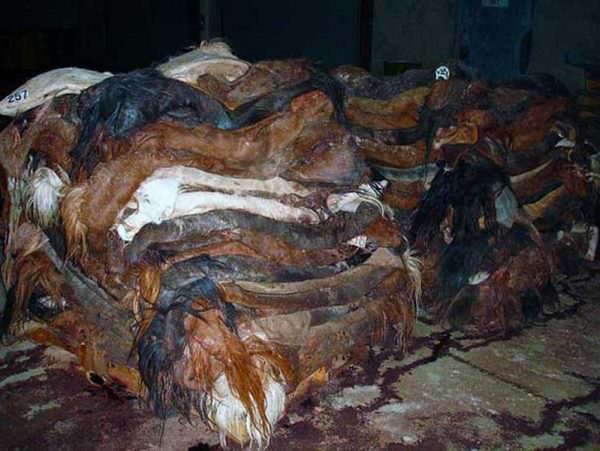
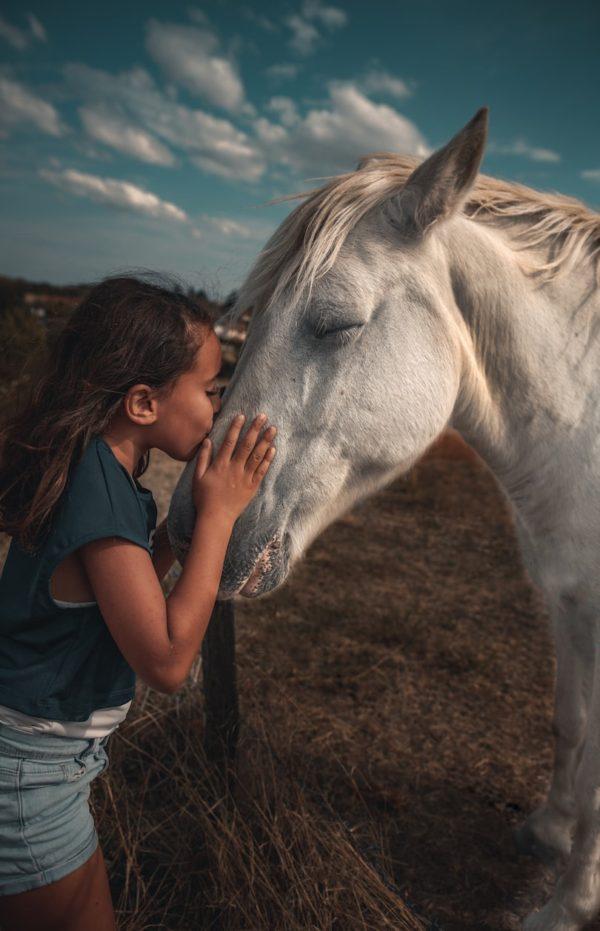
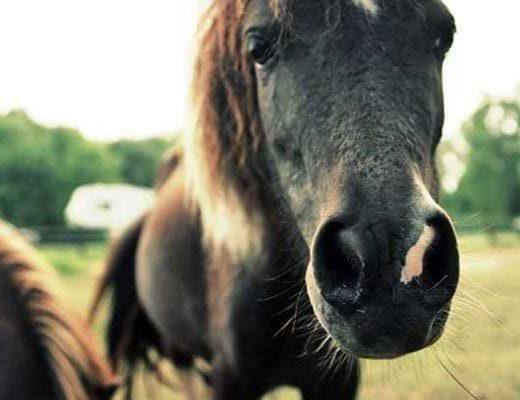
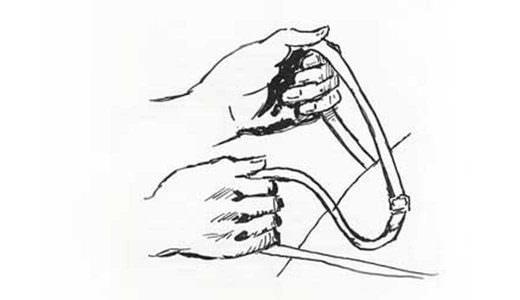
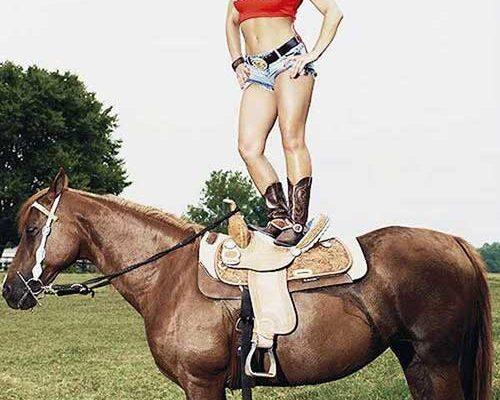
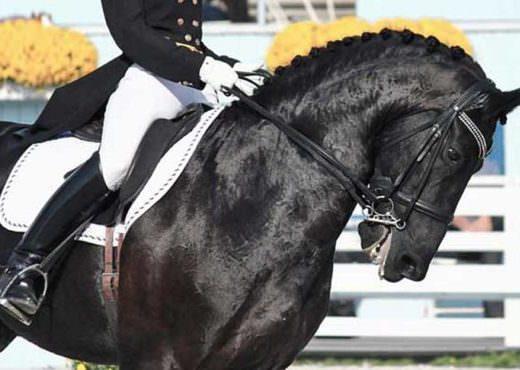
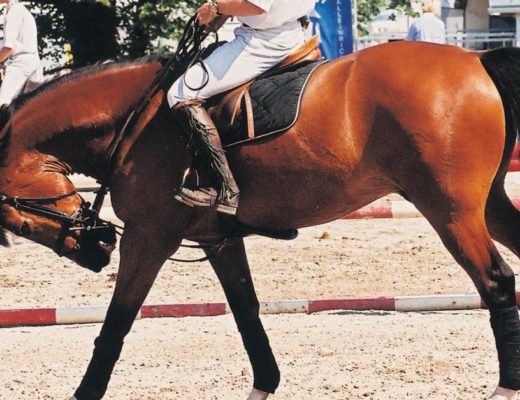

I believe there is a much needed market for horse slaughter. Before that statement gets anyone up in arms, I do have some things to add.
I believe that even horses bound for slaughter deserve to be transported in a humane way that will not further traumatize them. I do not believe in equines being loaded into trailers designed for cattle, or over loading horse or stock trailers for the sake of making a buck.
I also believe that if the animals have had the unfortunate fate of being put down, it should be done in the most humane and effective way. I do not believe in causing any animal undue suffering. That said, a well placed bullet can be even more humane than a euthanasia shot administered by a veterinarian. I have seen both personally, and I can say first hand that a horse who has been euthanized is aware longer than one who was put down quickly with a bullet. The passing of any horse, unfortunately, a sad fact that we must all eventually deal with.
My other point is also a very unfortunate one to consider. Living where I do, I have seen unwanted horses simply turned out on public lands. People are causing multiple problems by doing this. They are first condemning that animal to a cruel death by either starvation, injury, or predator. A horse who has been raised by humans is not a wild animal, and cannot function as one. Another issue is that these animals are then competing with local wildlife for forage, and pose health risks to wild herds. It would be much more humane for one animal to go to slaughter than risk an inhumane death for itself or other wildlife.
I do agree that slaughter should be the last resort, but in some cases, it may been in an animal’s best interest. It is a sad fact, but a true one in certain situations.
Jen,
The demanding market for horse slaughter is not so cut and dry, I feel. There was a time when I supported horse slaughter, for the sake of maintaining a viable population of horses vs dealing with the overpopulation issue that is now facing the country. Yes, people are turning horses loose left and right, the economic impact of overpopulation is stressing horse breeders and so on.
If the issue is turned around however, the problem is not overpopulation. Overpopulation is not the CAUSE, it is the RESULT. It is the result of professional horse breeders, backyard breeders and the “oops!” or “I just love this mare and think she’d make a great mom!” breeders combined. It is not JUST the backyard breeders, or JUST the professional breeders. Any horse can become a throw away in an economy that is flat-lined.
To solve overpopulation equestrians first have to tackle over breeding. To tackle that is for everyone to put on their grown-up pants and realize that they are not unique, special or otherwise exempt from producing a throw away horse by breeding. If a large majority were to do this for say, 5 years, the horse population would drop dramatically without the need for slaughter houses. Unfortunately nobody wants to take that kind of responsibility and commit to it themselves while working to rally the troops around them to join in. It is no different than everyone complaining about politicians and government corruption, but not having the gall to stand up and protest in large numbers.
Lastly, comparing a bullet to the head of a horse at a slaughter plant to that of chemical euthanasia is nonsensical. It completely ignores the fact that these horses go through immense stresses involved in being hauled to auction and being purchased by a kill buyer, trailered hundreds of miles in a cramped livestock trailer not meant for horses without food or water or reasonable rest next to horses that they do not know and may not get along with. After this they get unloaded into pens outside of a building that smells of death and bears the weight of nervousness. These horses may be severely injured, starved, certainly dehydrated, in immense pain from some past lameness or other reason. Fighting is certain to occur in various pens among horses, further adding to the tension and stress, and injuries. When their number is up they get pushed through pens nose to tail, perhaps with the help of electric prod and violence. They get to hear the horse in front of them be killed, get forced into the kill chute where there is blood, urine, manure and the stench of anxious death. Finally, if they are lucky a bullet puts them out of consciousness. From the videos however that is not always the case and many times the bullet does not stun or kill the horse immediately, requiring second or even third rounds to get it right. In Mexico a bullet isn’t even worth wasting on them where they instead impale them in the spinal cord with a knife… if their aim is correct.
Even in the case of a difficult chemical euthanasia it cannot even come close to this type of death sentence.
35 years ago, I began a boycott of meats and the meat industry because of inhumane slaughter and farming of cattle. I became a devout vegetarian, and ultimately, a vegan. I spoke out. I hung graphc posters. I went to grocery stores and requested that they carry local, humanely-raised meats. I was laughed at, ridiculed, and even ostracized by some of the people I thought were my friends, just because I said “no thank you” to steak at the table. It was considered rude. “Rude?” How is saying “no thanks” ruder than the way the meat got there in the first place? I am happy to say that after the movie about Temple Grandin, and after wider awareness and the health concerns of eating feed-lot abuse-meats, things have changed. The fight (obviously) is not over. I say keep your boxing gloves on and keep speaking out, no matter how small or insignificant you think your audience is. I used to bring home undercover videos and show them to my parents. They changed their eating habits. They became interested in finding locally farmed foods. I like to think that the bandwagon I jumped onto 35 years ago helped to promote awareness. I am happy that there are more “food” choices now, and I started eating meat again a few years ago, but it is always organic, pasture- or wild-raised, and always ALWAYS humanely killed. I like meat. I just don’t like making it suffer for the privilege of being my dinner.
I would like to add that I have never, and probably will never, eat a horse. Eat LIKE a horse, maybe… but never a horse. xo
It isn’t just refusal of meat. I have a lot of food allergies/sensitivities and refusing any kind of food (even if it’s because you’ll literally become sick from it) makes for awkward situations. People offended, or they’ll try to convince you you’re not allergic to whatever is in that dish, etc. when you know you are.
I’ve also been vegetarian and vegan at different times and the same thing. At this point I mostly try to avoid get-togethers where the main feature is a meal. I can eat chicken/fish/seafood/eggs but no red meats and almost never pork or turkey but that doesn’t improve the way people respond when I can’t eat something they’ve made (or anything in most cases).
Food is a strange thing, and how we gravitate around using it as an excuse to socialize. I never really understood that – like people want to socialize but they don’t know what they’ll do if they can’t be interrupted by putting food in their mouth. lol
And good for you, I try to avoid any conventionally-farmed animal products as much as possible even with the limited amount I do eat of them. Gets tough in certain regions of the country, but it is getting easier every year as small humane farmers and organic farming has become more popular and received more support.
We’re definitely moving in the right direction, it really is about continuing to push against these abusive practices and not become lazy thinking we’ve done ‘enough’.
Cheers,
Erica
I -will- share these vids on FB… thank you. I know what is on them. I can’t watch.